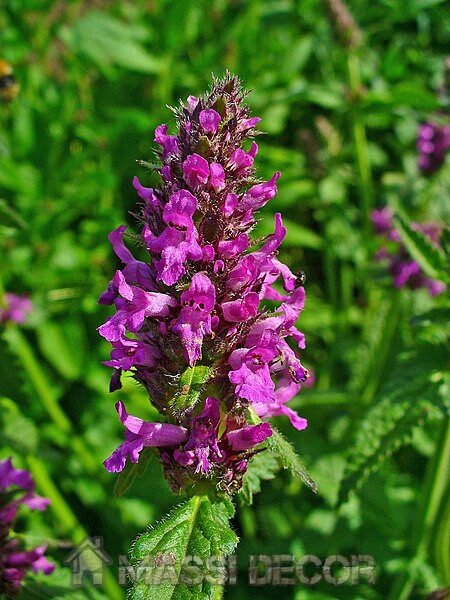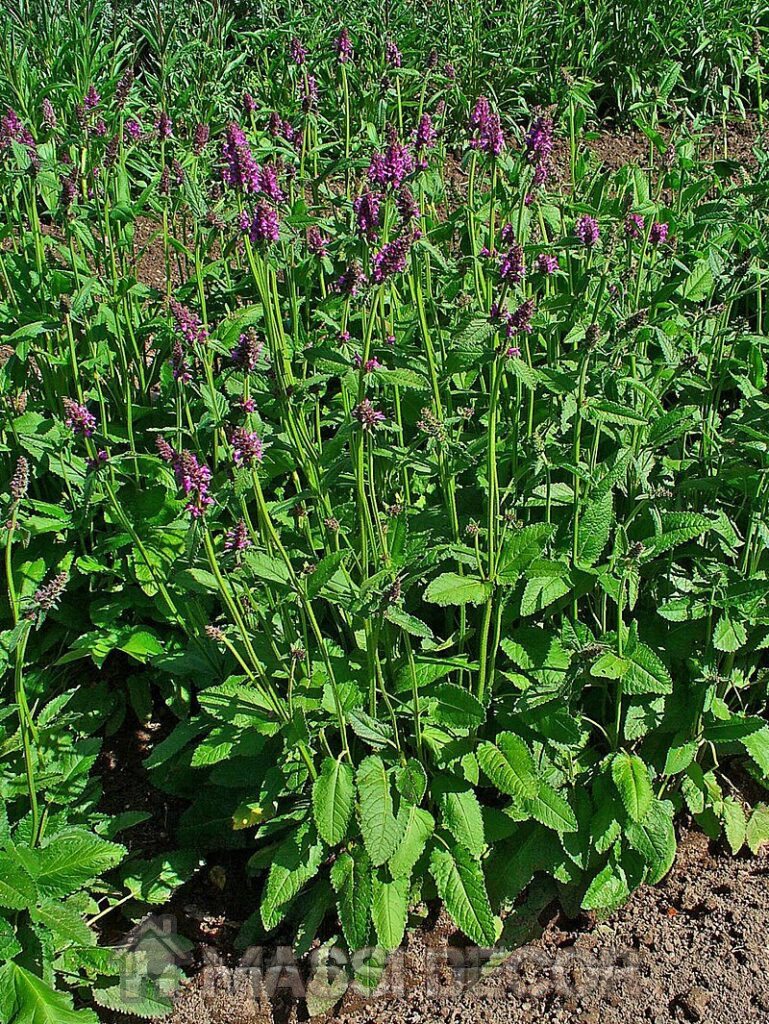Table of Contents
The Remarkable Audry Betony: Pioneering Herbalist Lost to History
Walk into any grocery store today and you’ll likely find turmeric tea, echinacea capsules, valerian root sleep aids, and feverfew migraine balms stacked on shelves. Herbal remedies that were once dismissed as folk medicine are now mainstream. We have Audry Betony to thank for helping turn the tide of herbal appreciation. Yet few know her name today.
Born in 1899 in the rolling hills of rural Pennsylvania, Betony had a childhood wonder of nature’s bounty around her. She strolled through meadows collecting herbs and steeping concoctions with the curiosity of an alchemist. What began as a childhood hobby blossomed into a pioneering life mission to unlock the healing secrets of plants.
Forgotten Herbal Medicine Trailblazer
At a time when patented drugs and modern medicine were gaining prestige, Betony carved an unconventional path as an herbalist. She operated an apothecary shop supplying her homemade herbal formulas. Betony traveled to China and India, learning traditional practices foreign to Western doctors. She advocated passionately for botanical treatments through speeches, books, and rigorous scientific research.
While not a household name today, Betony was renowned in herbal medicine circles. She authored over 50 books disseminating herbal knowledge to the public. Betony founded an herbalism school, the Betony Institute, still operating today. She helped counter the narrative that natural healing was backward “quackery” and not worthy of study.
“Plants hold untapped powers to treat the body gently and safely,” Betony wrote in her 1943 book Herbs for Health. “With an open mind and proper research, herbalism can transform medicine.”
Unlocking Nature’s Secrets
Betony’s prodigious research delved into the scientific underpinnings of medicinal herbs. She wanted to move herbalism from folk remedies to validated medicine. Some key contributions include:
- They are proving feverfew efficacy as a migraine treatment, later confirmed by clinical trials. Today feverfew remains a leading natural supplement for migraines.
- Studying Gingko Biloba’s ability to improve memory and cognitive function by increasing blood flow and oxygen to the brain. Leading to ginkgo becoming a popular supplement.
- Researching chamomile and lemon balm for reducing anxiety, valerian root for insomnia, and echinacea for immune health - laying the groundwork for some of today’s most popular herbal remedies.
- Experiment with herbs like turmeric, garlic, ginger, and astragalus for anti-inflammatory benefits and antioxidant effects. We now understand these mechanisms better thanks to Betony’s early inquiries.
- Developing an early version of Mullein and Garlic Syrup to treat bronchitis, a remedy still used today.
Betony combed through historical texts and global practices looking for promising botanicals. She cultivated an extensive medicinal plant garden to make tinctures, salves, and tonics for study. Her curiosity fueled trailblazing contributions across many herbs we still use.
Respecting Nature’s Wisdom
While a scientist at heart, Betony also believed nature held wisdom beyond what science could fully explain. She learned from indigenous people on her travels, integrating their ancestral herbal knowledge into her work.
Betony brewed teas from foraged wild plants growing on her property, believing that plants growing nearby could provide targeted relief. She noted how native cultures would use local herbs specific to their terrain for optimal health.
At conferences, Betony would declare, “We must learn from the genius of the plant kingdom with humility.” She sought to expand and modernize herbalism but with deep respect for nature’s time-tested lessons.
An Unconventional Trailblazer
As a young woman in the early 1900s eschewing convention to study folk herbalism, Betony broke glass ceilings. The scientific community patronized her as an eccentric amateur playing with weeds. When researching in India, she had to disguise herself as a man to gain access to sacred medical texts.
Betony brushed off the dismissals and condescension. She remained resolute in her mission to bring herbal medicine into the modern era. As one admiring peer described her, “Audry charges forward with an iron will, yet the gentle soul of a healer.”
In 1972, the International Herb Association awarded Betony a lifetime achievement award for her pioneering work. She generously passed her knowledge on to students at her Betony Institute until her retirement in 1975 at age 76.
Audry Betony charted a new path at the intersection of science and tradition. She rose above her era’s limitations on women with strength of spirit and vision that still awes herbalists today.
Her Lasting Influence
Though Betony herself has faded into obscurity, her pioneering work laid the foundation for modern herbalism’s growth. Examples of her lasting influence include:
- Scientific validation of medicinal herbs she researched has steadily increased over the decades since Betony’s time. Her copious notes and formulas provided early clues for pharmacologists to pursue.
- Ancient herbs she brought to light like turmeric and ginseng have gained global popularity as ongoing research uncovers their mechanisms and benefits.
- The Betony Institute remains a thriving herbalism school teaching new generations of herbalists to carry forward Betony’s mission.
- Her writings inspired later prominent herbalists and natural health advocates who shaped the natural medicine renaissance of recent decades.
- Consumer demand and regulatory acceptance of herbal supplements have increased thanks to the early legitimacy Betony gave to medicinal herbs.
Betony’s work flies under the radar, but she was instrumental in the rising tide of herbal appreciation over the 20th century. She gave scientific rigor and academic infrastructure to what had been dismissed as folkloric medicine.
Relevance Today
While Betony was born in the 1800s, her message resonates now more than ever. Amidst growing disillusionment with profit-driven pharmaceuticals and synthetic drugs, people are returning to gentle, natural remedies that Betony championed.
Betony valued herbs’ ability to holistically support wellness without aggressive side effects. She advocated respecting the innate healing wisdom of plants – a sentiment that deeply appeals to today’s natural health movement.
Betony also empowered women in science at a time when that was taboo. She surmounted obstacles through steadfast dedication to her healing mission. Betony’s accomplishments remain an inspiration for female scientists and herbalists who still face challenges today.
Medicinal Plants Researched
Betony’s extensive studies covered dozens of healing herbs. Some of the key botanicals she researched include:
- Chamomile – Studied the relaxing properties of this gentle herb for anxiety and sleep aid. Betony noted chamomile’s rich history across many cultures over centuries.
- Echinacea – Researched this classic immune booster’s ability to help the body resist colds and flu. Betony prepared fresh echinacea root tinctures.
- Feverfew – Betony’s work unlocking this herb’s ability to prevent migraines led to purified feverfew extracts used in supplements today.
- Ginger – Documented ginger’s traditional use for nausea relief and digestion aid across traditions from China to India. Modern research has since supported ginger’s efficacy.
- Ginkgo biloba – Betony studied ginkgo leaf’s potential brain-boosting benefits, which we now know comes from its ability to dilate blood vessels and increase oxygen flow.
- Turmeric – Intrigued by turmeric’s prominent role in Ayurvedic medicine, Betony researched the anti-inflammatory benefits of its active compound curcumin.
Her Curiosity Lives On
While the specifics of health and medicine have changed since Betony’s era, her ethos remains powerfully relevant – have an open mind, respect nature’s wisdom, and never stop learning. We all can channel Betony’s spirit of curiosity to keep expanding our knowledge of botanical remedies.
Though largely forgotten, Audry Betony’s mission to validate herbal medicine laid the groundwork for its modern resurgence. Her vision and perseverance against skepticism paved the way for millions to embrace nature’s ancient botanical treasures once more.
So the next time you sip an herbal tea, know you’re partaking in Betony’s legacy – one of tenacity, compassion, and honoring plants' profound gifts of healing.
Reference: Wikipedia
Massi Decor is supported by our readers. We may earn small commissions when you make purchases through referral links on our site. This does not impact our recommendations, which are guided solely by our editors' objective assessments. We only recommend products that meet our high standards. Today's Deals



